QuestionMy 2 year old tabby cat gets sick after eating. At first I thought it was separation anxiety, she's very anxious. But it's happening more and more frequently. Could it be a food allergy? I changed her food to a new brand a few months ago, and I think it started then. But now it's getting increasingly more often. She's gotten sick three times in the last month. She's terrified of other people because she was abused as a baby, so I don't want to unnecessarily scare her by taking her to the vet, but if i need to I will.
AnswerHi Cindy. A food intolerance is a definite possibility, especially since you noticed the illness seemed to occur around the time you changed her food. You may want to try changing her diet again. The ingredient that causes the most stomach upset in cats is corn, so avoid this in any food. Wheat can also be allergenic. Chicken and rice formula foods or grain-free diets are often good for cats with sensitive stomachs. However, be sure to make any diet changes slowly over the course of 7-10 days to avoid further stomach upset.
You may also want to try a prebiotic/probiotic with her. A good one is Proviable by Nutramax, and another is FortiFlora by Purina. Both are available online or through vets. These can help add in and encourage the growth of helpful bacteroa to aid in digestion. They're especially good for cats with diarrhea but may help with vomiting, as well.
One last thing you can try at home is to place her food on an elevated surface, and to spread it out on a plate. Some cats have abnormalities in their esophagus that prevent food from getting down into the stomach if they eat with their bowl on the floor. These cats regurgitate their food shortly after eating it (as opposed to true vomiting). If her plate is elevated, gravity will keep her food moving in the right direction toward her stomach. Other cats can gobble mouthfuls of food and cause themselves to vomit. If food is spread out on a plate, this will prevent that behavior.
If none of these help, you should get her to a vet. She may have a parasitic infection or an inflammatory disease. Parasitic infections can include worms or protozoan germs like coccidia or giardia. Some bacterial infections can be culprits, too. A stool sample may be helpful in determining if any of these are present.
Some cats suffer from an illness called Inflammatory Bowel Disease. It isn't understood why, but inflammatory cells invade the stomach and bowel, causing vomiting and/or diarrhea. This is a serious condition because cats will eventually starve to death if not treated. However, the disease can usually be successfully managed. A diet change can help (often to a prescription food), as well as antibiotics and anti-inflammatories such as prednisone. Some cats require treatment with immunosuppressant medications instead. Unfortunately, there's no test for this disease, so it's diagnosed after all other causes of vomiting are ruled out.
Good luck!
Jessica

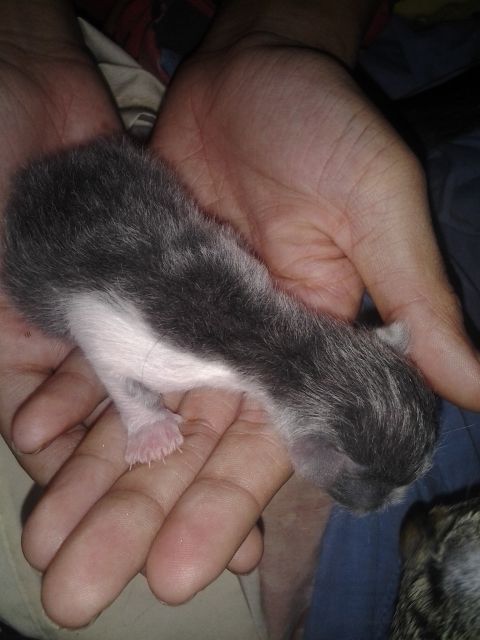 Trouble with my Two female cats.
Question
The kitten Two Cats
Hello, I have
Trouble with my Two female cats.
Question
The kitten Two Cats
Hello, I have
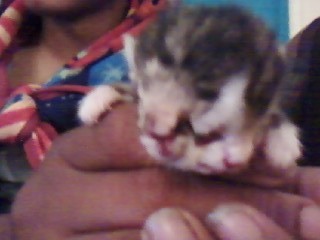 my cat had a kitten with one head and part of another with a mouth and has not nursed since she was born.
Question
my newborn kitten
my cat delivered a female ki
my cat had a kitten with one head and part of another with a mouth and has not nursed since she was born.
Question
my newborn kitten
my cat delivered a female ki
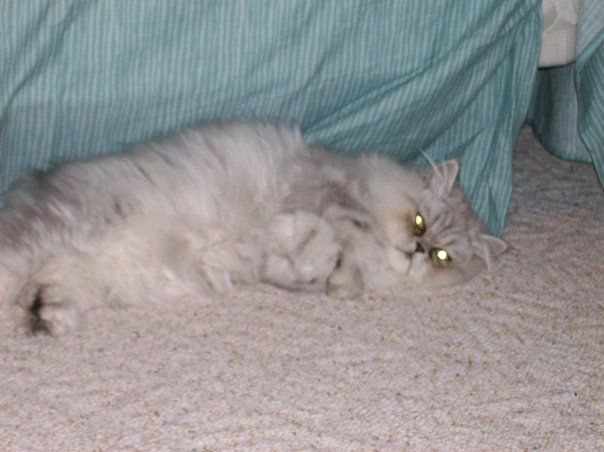 Persian Male peeing outside of litter box
Question
Bambam
I have a 2 year old Male persian who ur
Persian Male peeing outside of litter box
Question
Bambam
I have a 2 year old Male persian who ur
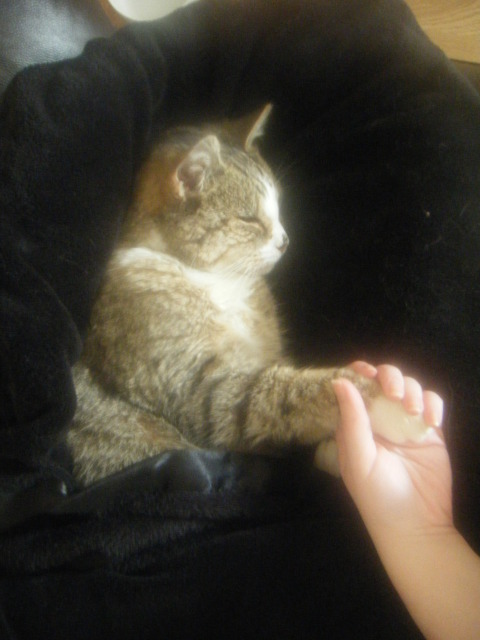 my old cat with no appetite
Question
Timmy since his loss o
Hi, Im really worried a
my old cat with no appetite
Question
Timmy since his loss o
Hi, Im really worried a
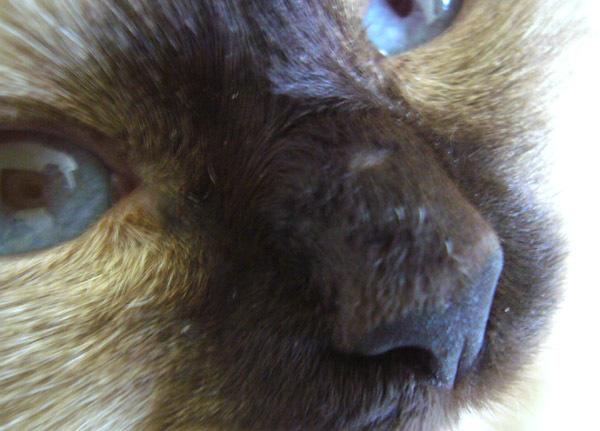 Bald spot on my cats nose
Question
bald spot
Hello Jessica,
Today I notic
Bald spot on my cats nose
Question
bald spot
Hello Jessica,
Today I notic